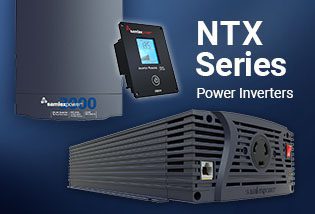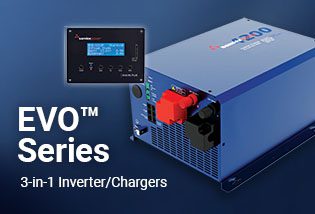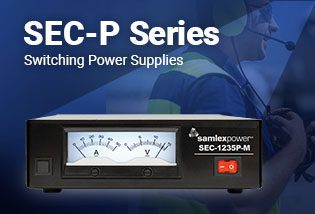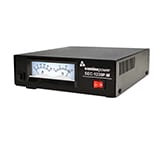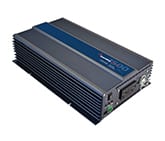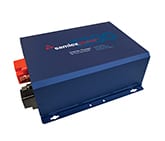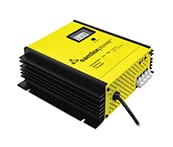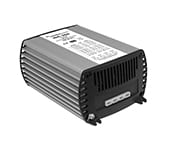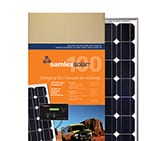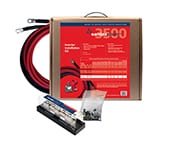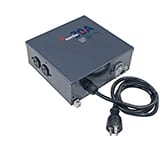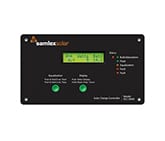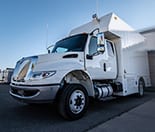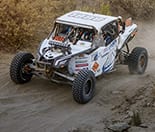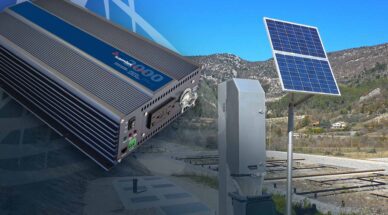Lithium-Ion or AGM Batteries?
“Today’s consumer is changing, and the next generation of buyers is unlike anything we have seen to date,” said RV Industry Association President Frank Hugelmeyer. To address the needs of this new generation of buyers, it is necessary to be innovative when it comes to product development and adaptability. That is why we designed and manufactured our EVO™ Inverter/Charger Series to not only work with conventional lead-acid battery types but also to work with lithium-ion batteries to supply reliable household (AC) power wherever it is needed. In this blog post, we will discuss some advantages and disadvantages of using lithium-ion batteries with your EVO™ inverter/charger.
Battery type is a programmable option that enables you to continue to enjoy the unique benefits of your EVO™ products whether you use AGM batteries or replace them with their Lithium-ion counterparts. Below is a list of reasons why many people who are looking for off-grid power solutions for their RVs, boats, tiny homes, etc., are choosing to purchase lithium-ion battery banks instead of a conventional lead-acid type battery.
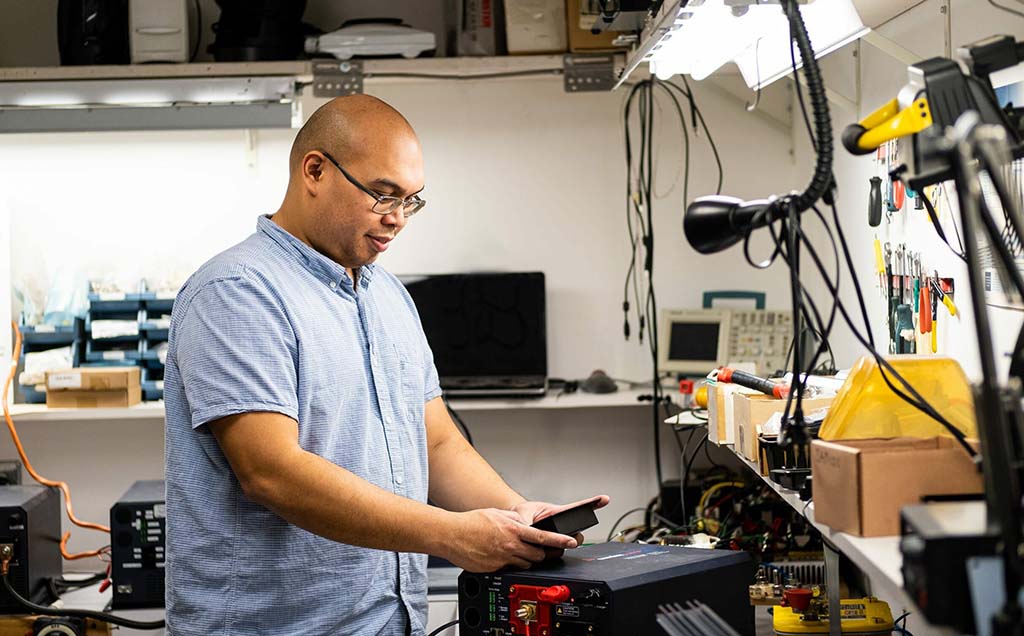
Advantages of Using Lithium-ion Batteries
There are many advantages to using a Lithium-ion (LiFePO4) battery. As a result, this technology is being used increasingly by more people for a variety of different applications. For instance, according to a 2018 report by The Freedonia Group, the demand for lithium-ion batteries is projected to increase 9.0% per year to $3.1 billion in 2022. This growth in usage is mainly powered by intersecting trends as well as price declines, which have made this technology economically viable for the end-user.
- Lightweight: Compared to other battery chemistries, lithium provides the same or greater energy at less than half the weight and size. This translates into more flexibility and easier installation.
- Prolonged Service Life: In general, battery life expectancy is highly dependent on where and how the battery is being used. Lithium-ion batteries are known for their prolonged service life if used correctly. Overall, lithium-ion batteries last 2 to 3 times longer than similarly rated lead acid batteries.
- High Energy Density: A battery with high energy density can deliver the same amount of energy but in a smaller footprint compared to a battery with lower energy density. This is what makes lithium-ion batteries a suitable choice for electric vehicles.
- Low Self-Discharge Rate: All batteries experience some amount of self-discharge, but the rate at which this discharge happens depends on a few different factors such as temperature, battery type, and the initial charging state. For lithium-ion batteries, the self-discharge rate is much lower than that of lead acid batteries. According to electronics-notes.com, this rate is typically around 5% in the first four hours after being charged but then falls to around 1 or 2% per month while the discharge rate of lead acid batteries can be up to 5 times higher, as mentioned by power-sonic.com.
Disadvantages of Using Lithium-ion Batteries
Some of the other main advantages of lithium-ion batteries are ease of installation, minimal maintenance, use of non-hazardous materials, a high level of efficiency, and reliability. However, when it comes to lithium-ion batteries, there are some limitations and disadvantages to be aware of. For instance, lithium-ion batteries typically cost 40% more than lead acid batteries. This is a significant factor, especially when considering their use in mass-produced consumer products where a high number of batteries are needed.
Additionally, because lithium-ion batteries are susceptible to conditions that can damage the battery pack and need to be regulated for safety reasons, a Battery Management System (BMS) is always incorporated in such battery systems to avoid these damaging conditions. The existence of such a battery protection system means that the BMS shuts the battery down if it senses that the battery is operating outside of its safety margins. While this might be useful in some scenarios, it can be problematic when the user needs power regardless of the possibility of the battery getting damaged in the long run.
This is something new that system designers need to be aware of when designing their system. Lithium batteries need to be treated more like an electrical power device than a regular battery. It has current output limits, charge limits, temperature and voltage limits that will turn the power off. Historical battery technologies may get damaged if these limits are exceeded, but power will still typically be available in some form. Designers need to be aware that the Lithium battery will turn off under certain conditions and adjust their designs to allow for it.
Features of the EVO™ Inverter/Charger
Do you remember Steve Job’s well-known presentation in 2007 during which he revealed the original iPhone? An iPod, a Phone, and an Internet Communicator! While our EVO™ Inverter/Charger is not an iPhone it is a powerful device that offers you three different products with unique functionalities all in one mighty package. As the name suggests, it is a three-in-one device that combines a DC-AC Power Inverter, a Battery Charger, and a Transfer Switch.
When you plug into shore power, your EVO™ is going to charge your batteries and run your AC appliances without using the batteries. If you are off-grid doing some dry camping or boondocking, it senses that there is no shore power available, and the internal transfer switch will automatically switch to using the batteries to power those same AC devices.
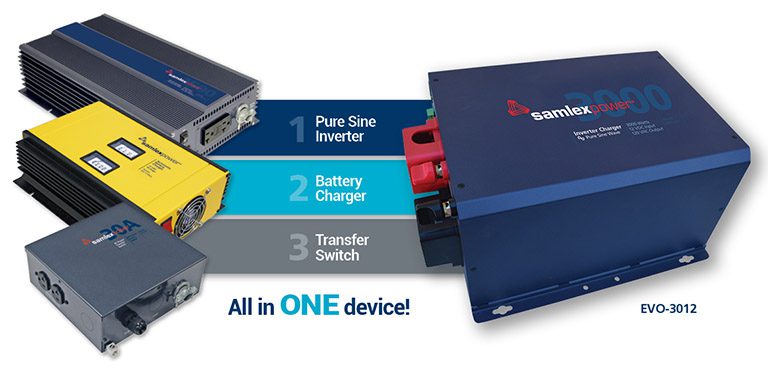
What are its benefits?
- 3X surge lets you run high power appliances such as compressors, refrigerators, heaters, microwaves, and even air conditioners without any issues.
- Samlex EVO™ Series inverter/chargers have a programmable Low DC Input Voltage Shutdown feature that can protect and maintain your batteries by disconnecting the battery connection if the DC input voltage drops down to a predetermined threshold.
- Samlex EVO™ Series inverter/chargers are compatible with lithium-ion batteries as well as lead-acid battery types.
- Thanks to the built-in dual Transfer Switches, one for grid or shore power, the other for generator, there is no need to manually switch from grid to generator.
- One of the biggest differentiators with our EVO™ Series inverter/chargers is the additional DC/Solar input that we have on all units. Users can wire the solar system (from the charge controller) directly into the EVO™, saving time and centralizing the power system around the EVO™. This reduces the power needed from the AC source for charging batteries and allows more power to be available to the load when the sun is shining.
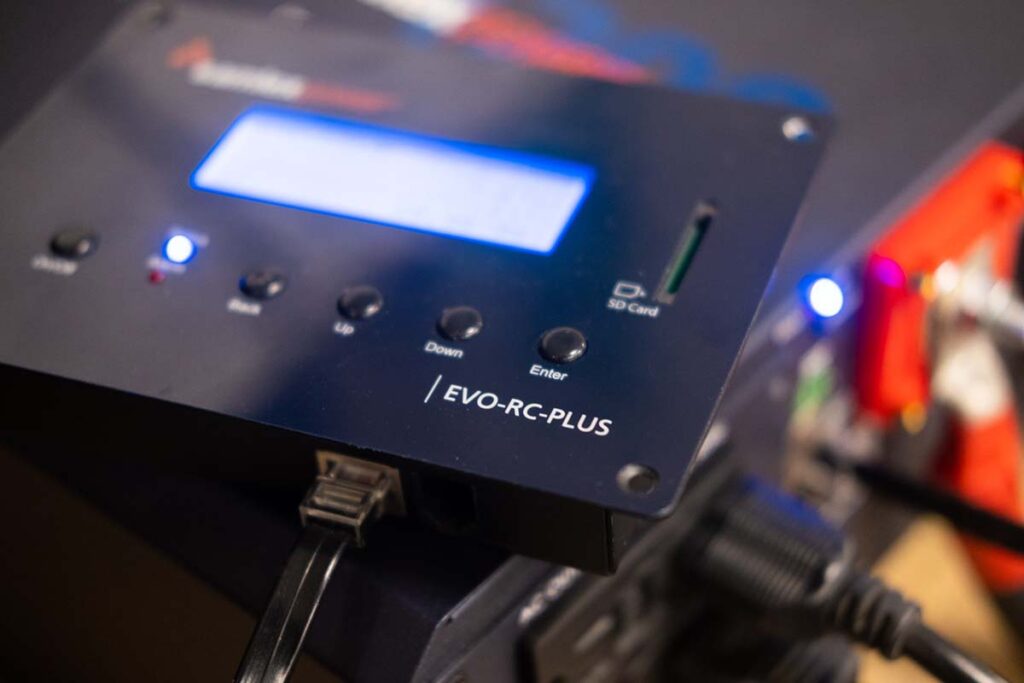
EVO-RC-PLUS
The EVO-RC-PLUS remote is used to monitor and program all the functionalities of the Inverter/Charger. A unique feature of the EVO™ series remote control is the removable 32GB SD card. This remote control allows you to monitor power consumption, inverter functionality, battery charging activity, faults and the conditions leading up to them. Additionally, the SD card functionality in Samlex remote controls can be used to clone another EVO™ inverter/charger. This is especially helpful for installers and OEMs that need to set up multiple inverter/chargers using the same parameters.
If you ever run into issues, you can simply upload the SD card data to your computer and have our tech support team troubleshoot the problem for you online. You can use the remote to program different parameters and view performance details in real-time.
If you are interested in learning more about Samlex America’s Evolution™ Series of robust pure sine-wave inverter/chargers, feel free to contact us via phone or email. No matter what industry you are in, we are proud to have a dedicated sales team comprised of experts in all the different markets that we serve.
Sources:
https://relionbattery.com/resource-center/technology/why-choose-lithium
https://www-marketresearch-com.eu1.proxy.openathens.net/academic/Product/15809786
https://www.power-sonic.com/blog/lithium-vs-lead-acid-batteries/


